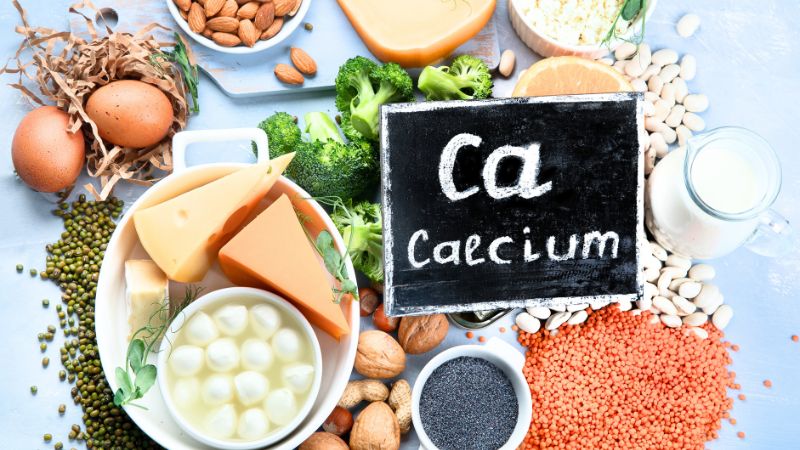Multivitamins are used quite commonly today to provide vitamins for the body. But when using multivitamins, pay attention to the following ingredients.
Proper multivitamin supplementation will bring many benefits to human health. However, you should not abuse it and pay attention to some of the following ingredients in multivitamins.
1 Calcium
The use of multivitamins with high calcium content should be carefully considered. In some people with high calcium levels in the body, supplementing calcium through multivitamins can lead to harmful effects such as kidney stones, constipation and mood disorders due to high calcium levels.
It should be noted that overdose of any ingredient in multivitamins can be harmful to the body. Calcium and iron are two ingredients that often pose a higher risk than other ingredients.
 Calcium
Calcium
2 Iron
Iron supplements from multivitamins can be harmful for people who are not iron deficient. According to the National Institutes of Health (NIH), taking large amounts of iron (especially on an empty stomach) can lead to digestive problems such as stomach upset, nausea, constipation, abdominal pain, vomiting, and diarrhea.
More dangerously, excess iron can cause inflammation of the stomach lining, ulcers, and affect the body’s ability to absorb zinc.
Although iron is important in treating iron deficiency anemia, people with normal blood counts do not need to supplement with iron from multivitamins.

Iron
3 Copper
Similar to calcium, high-dose copper supplementation through multivitamins also carries risks. Each micronutrient has a specific recommended intake, and the balance of trace minerals is essential for basic health functions in the body. Excess copper can lead to fatigue and even damage to the kidneys, liver, heart, and brain.
Although calcium and copper both play important roles in life, supplementation of these two minerals through multivitamins should only be done under the direction of a doctor.

Copper
4 Retinol (vitamin A)
Vitamin A plays an important role in maintaining the health of many organs, strengthening the immune system, supporting reproductive health and vision. However, the body can synthesize enough vitamin A from a balanced diet. High doses of vitamin A supplementation can lead to some unwanted side effects.
For pregnant women, pure vitamin A supplementation should be carefully followed by a doctor because it can affect the development of the fetus. Instead, beta carotene – a precursor of vitamin A – is considered a safer choice. Beta carotene will be converted into vitamin A by the body when needed.
Beta-carotene is abundant in green vegetables such as kale, spinach, broccoli, pumpkin, and other foods such as sweet potatoes, carrots, cantaloupe, red peppers, yellow peppers, apricots and peas.
5 Sugar
Many multivitamins contain sugar, which does not provide many health benefits. Therefore, to limit excess sugar intake, prioritize choosing sugar-free or low-sugar products.
In addition, be aware of supplements containing sugar alcohols such as sorbitol and xylitol. Although used to improve the taste and texture of multivitamins, sugar alcohols can cause digestive upset such as gas and bloating in some people. Furthermore, the long-term effects of some new sugar alcohols on the market have not been fully studied.
6 Vitamin E (Dl-alpha-tocopherol)
Multivitamins may contain dl-alpha-tocopherol, a synthetic form of vitamin E. However, this form of vitamin E is less effectively absorbed by the body than the natural form RRR-alpha-tocopherol and may cause side effects such as nausea and gastrointestinal upset.

vitamin E
Above are the ingredients to note when using multivitamins that you need to pay attention to when supplementing. Hopefully, the above information will help you know how to supplement multivitamins safely for your health.





